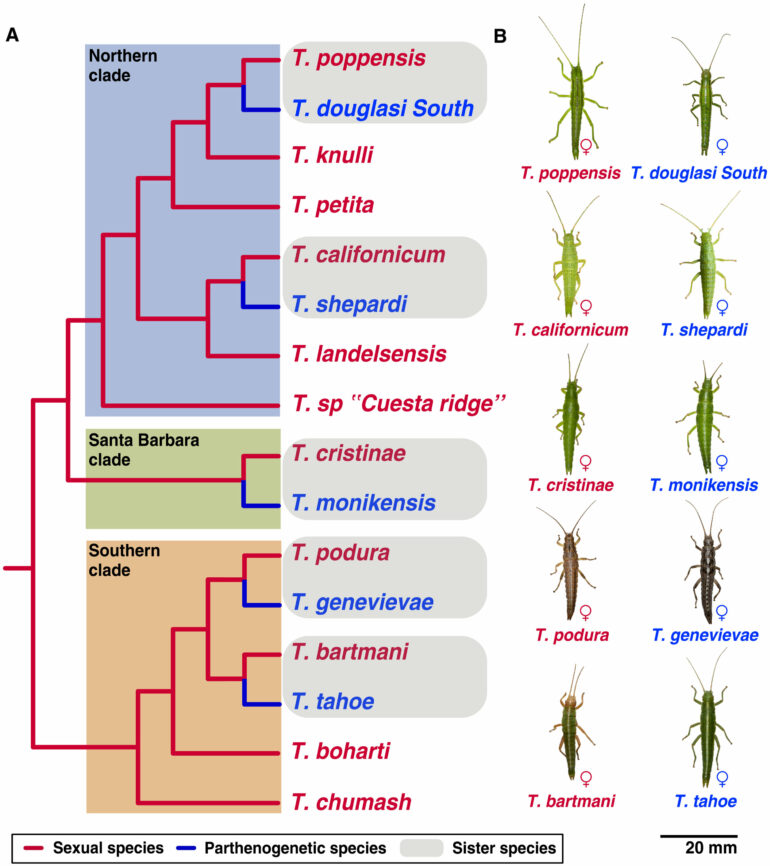An international research team has shown that parthenogenesis, a form of asexual reproduction, negatively affects the genome evolution of the animals that practice it. In this type of reproduction, the offspring are produced from a single unfertilized egg. The study was led by Professor Dr. Tanja Schwander and Professor Dr. Marc Robinson-Rechavi at the University of Lausanne in cooperation with partners at the University of Edinburgh and Dr. Jens Bast at the University of Cologne. The results have been published on 23 February under the title “Convergent consequences of parthenogenesis on stick insect genomes” in Science Advances.
Offspring are produced via two main reproductive pathways: sexual, i.e. fertilization between male and female gametes, or asexual, for example parthogenesis. In parthenogenesis, females pass on their genes without a male being involved. Timema are a genus of stick insects native to western North America, and includes both sexually and asexually reproducing species. The biologists discovered that in asexually reproducing Timema, beneficial mutations cannot be passed on as efficiently in the long term.
Like humans, Timema have a double set of chromosomes. The extent to which these two genome copies differ is described as heterozygosity. During parthenogenesis, however, this difference is lost and the two genome copies become very similar. This reduces variability, which can be important for species to adapt to their environment.
The research team analyzed the genomes of five asexual Timema species and closely related sexually species that reproduce sexually. “The results show that genetic exchange during sexual reproduction promotes the speed of adaptation and genetic diversity in the insects’ natural populations,” said Dr. Jens Bast.
Bast researches the processes of sexual reproduction and the mechanisms of asexuality in the University of Cologne’s “Sex Lab.”
More information:
Kamil S. Jaron et al, Convergent consequences of parthenogenesis on stick insect genomes, Science Advances (2022). DOI: 10.1126/sciadv.abg3842
Provided by
Universität zu Köln
Citation:
Asexual reproduction can have negative effects on genome evolution in stick insects (2022, February 25)



